The novel coronavirus has struck a worldwide crisis and has developed and manifested amongst various people and groups. Although, there is not much known about the COVID-19 virus affecting domestic pets and animals.
Recently, there has been a case reported in Belgium where a cat has been infected by the novel coronavirus which has got many people wondering whether animals can get the coronavirus under any circumstances.
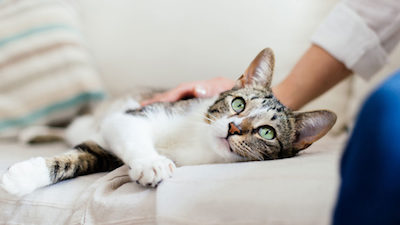
There are studies yet to be conducted to confirm the fact whether the disease was contracted through the cat’s owner who was reported positive for the virus. Conversely, there is no evidence to support the fact that cats can spread the virus to humans.
Read below to find out how to keep you and your feline friend safe and healthy while keeping the coronavirus at bay.
Contents
So far, the WHO has claimed that pets are not responsible for contracting as well as spreading the novel disease. The current outbreak is a result of human to human transmission and does report any animals being sick due to the spread of the virus. The global pandemic is believed to have sources from animals in China but cats are nowhere involved in being the probable causes or sources of the disease.
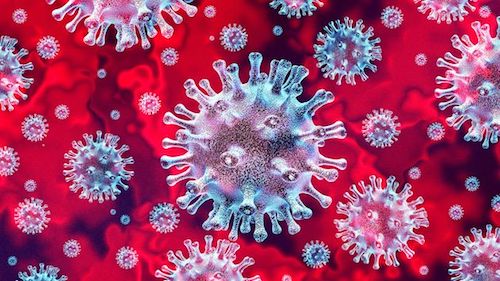
The COVID-19 virus has been classified as a SARS infection meaning, Severe Acute Respiratory Syndrome and can remain in the air for some time. The droplets can settle on smooth surfaces like doorknobs, platforms, etc. and hence it is very important to keep ourselves and our cats safe and sanitize these areas as much as possible.
There are certain queries that still remain unsolved as to whether cats can get the virus from the environment, the answer to which remains unknown.
Cats are known to have similar respiratory cells like humans that allows the virus to attach on the cell surface and replicate easily. The SARS-CoV-2 virus attaches to a receptor protein on the outside of the respiratory cells called the ACE-2 receptor. Once it attaches to the receptor, then it can easily enter the cell and hijack its machinery to replicate within.

The feline and human ACE-2 receptor resemble each other and are quite likely the source of entry for the virus. Although, there is no supporting event to prove the above study and hence, cats are considered as side victims and not the main causative factors to the virus.
A case reported in Belgium by the government’s FPS Public Health, Food Chain Safety and Environment on March 27 shows that a cat was tested positive for the COVID-19. This has raised questions about whether the virus can get to cats or no? Read more to know.
CDC and WHO reports claim that animals are in no way responsible for spreading the disease to humans and it is purely transmitted through human to human contact. With the current grave conditions, it is in the best of interest to keep yourself and your cat in isolation during such times when the disease is spreading rapidly.
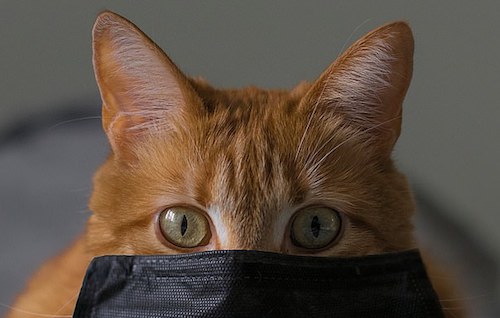
Although, if your fur-friend has been exposed to a patient who is infected with the coronavirus or is a carrier of the same, then precautions need to be taken as your cat can become a reservoir of the disease and spread it to you or someone else who touches it. This would be a form of a human to animal to human transmission wherein the cat is not the source but an agent of transferring the disease.
The COVID-19 virus is known to spread from human to human. But only recently, there has been an incidence showing human to cat transmission in Belgium which has people and researchers wondering whether we can spread the coronavirus to cats.
The owner of the cat got sick after returning from a trip to Northern Italy. A week later, the cat started developing symptoms like vomiting, diarrhea and breathing issues. The owner sent samples of her pet at the Faculty of Veterinary Medicine of Liège.
The genetic tests of the cat’s samples showed high levels of SARS-CoV-2. The cat is known to have to staying in quarantine until further reports get confirmed.
Some believe that these conditions must have been due to underlying health issues and has nothing to do with the new coronavirus. But in order to prove this, one case is not enough and blood tests need to be conducted to look out for antibodies specific to the virus. The tests can be conducted once the cat is out of quarantine.
This incidence has been a novel example of human to animal transmission and since cats and humans have common receptors, humans could pose to be a threat for cats and cause them to become victims of the COVID-19.
Animals have their own forms of coronavirus to deal with, one of them for cats being the feline coronavirus. With the recent case in Belgium, it is now getting difficult to predict whether the cat was detected positive for the novel human coronavirus or the feline coronavirus which has been existing for decades.
The Feline Coronavirus is very different from the COVID-19 virus and has a very different genetic composition in comparison to the novel virus too. Although the cat’s samples were found to have the RNA of the novel COVID-19 virus, one test is not enough to determine whether the cat is positive for COVID-19 or the feline coronavirus.
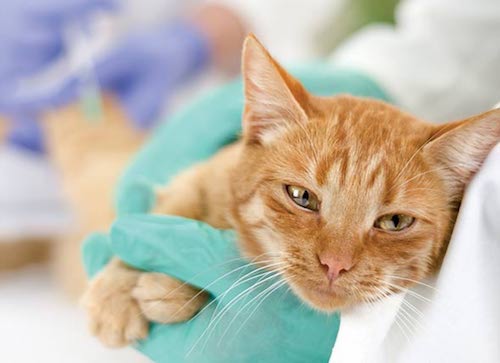
There are two forms of the feline virus, one form causes mild gastrointestinal disease and the other causes a highly fatal disease called Feline Infectious Peritonitis(FIP).
It is assumed that there are some types of coronaviruses that mutate into the FIP either by themselves or as a result of the cat’s immune response. The causative agent just like the novel coronavirus stays dormant inside the cat’s body and can take months before mutating into FIP. The FIP then takes over the White Blood Cells of the cat and uses them to transport into and invade the entire body.
So, Is the cat in Belgium really infected by the human COVID-19 virus?
If this holds true, then it can be believed that human to animal transmission may happen. Although, one case is not enough to jump to conclusions. Diagnostically speaking, the standard test for the novel virus only detects the viral genome and does not detect the infectious or live virus particles.
As of now, it is difficult to predict whether the viral genome that was found from the cat in Belgium was from a particle that could replicate or not. In order to determine if the cat has really been infected with the virus, many more specific tests need to be conducted.
Further reports would only be confirmed after the cat is released from quarantine. Until then, pets and cats are not known to have been carrying or are the sources of the virus in any form.
How Can I Keep Myself and my Cat Safe?
At these times where we are being expected to follow social distancing, it is best to follow the isolation practices with your kitty and maintain hygiene at all costs. Here are a few things to follow while petting your cat and battling with the disease:
- Wash your hands with a bar of soap for at least 20 seconds before and after handling your pet, its waste, food, toys, and other belongings.
- Avoid touching your eyes, nose, and mouth frequently.
- Stay inside your houses and do not allow your kitty to come in contact with infected people.
- Make sure to clean your cat after every activity, be it playing, eating, etc. Wipe them off properly after a bath to maintain hygiene.
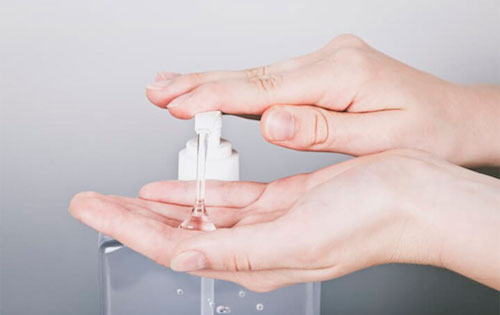
- Keep the most touched surfaces of your house sanitized. The virus particles are known to stay in the air for some time until they settle on flat and smooth surfaces like doorknobs or platforms. Since cats are known to sneak anywhere, they can easily come in contact with such surfaces and get infected.
- You can use mild shampoo or soap to bathe your cat and keep their fur and body clean. Check for cuts or abrasions as open wounds are highly susceptible to infections.
- Avoid visits to the vet. In case your cat is not keeping well, you could call the vet over the phone instead of visiting their clinic unless its an emergency.
- Do not stop interacting with your pet due to the virus scare. As long as you and your pet are isolated and inside your houses following routine hygiene practices, there is nothing to worry about.
If there is more than one person in your house and if there are children and old people, they need to be more careful and follow standard hygiene practices including washing their hands before and after handling the cat. Avoid kissing and hugging or getting licked by your pet and do not share your food and belongings at such times.
These practices can be followed on a regular basis too to maintain overall hygiene and good health for yourself and your feline friend.
In worst cases, if you get diagnosed with the novel coronavirus and have to stay in quarantine, you would definitely be worried about your pet.
Although there is no confirmed news that humans can transmit coronavirus to cats, it is better to maintain your distance from your closed ones, including humans and pets so that you do not spread the virus elsewhere.
Here are some measures you can take for your cat to stay safe and prepared while you stay away from your pet until things normalize:
- Inform a close relative or your local health protection team about your pet cat. Make sure that there is someone assigned to take care of your pet while you stay in isolation.
- Stock up on essentials for your cat, these include food items, hygiene-related items, medicines, etc. so your cat stays comfortably until you return.
- Keep some emergency phone numbers and vet contact numbers handy in case of an emergency. Try taking vet consultations over the phone instead of rushing to the clinic as clinics are possible hotspots of getting the virus.
- Avoid any kind of contact with your kitty which includes licking, hugging, snuggling or sharing your belongings with your fur friend. You could consider wearing a mask as an extra precautionary measure.
- Keep the hygiene practices going that includes washing your hands before and after touching your cat.
- Make sure that your pet stays indoors and tries to remain in minimal contact with people and the surroundings to avoid the spread of disease.
FAQs
Although there are not more than one positive case to confirm the fact that whether cats can get the coronavirus, the recently reported single case is known to have shown symptoms like vomiting, diarrhea, and problems in breathing. There are no significant symptoms being seen in animals as of yet.
If there are more and more symptoms observed in animals, then tests for them would be conducted. Else, with the rate in which the disease has been spreading in humans, animals do not seem to be affected by the virus as of now and testing them for COVID-19 is not the priority at this time.
Cats are not being found to transmit the novel coronavirus but can spread other common diseases. These include Campylobacter, Salmonella infections, etc. These are usually spread by coming in direct contact with your cat or their waste matter.
Common symptoms include diarrhea, vomiting, intestinal infection, fever, headaches, and abdominal pains. Washing your hands after handling your pet is important to avoid getting such infections.
Just as we would isolate ourselves from humans and keep them in quarantine if they are showing symptoms or are infected by the virus. Similarly, we would do it with our pets too. It is important to limit our contact with them and keep them enclosed in a room until they recover.
They can also be quarantined in a hospital or pet care center. Wash your hands before and after you come in contact with them and wear a mask as a measure of extra precaution.
Cats are not spreading the virus to humans as of yet. However, if your cat comes in contact with an infected person, he may become a reservoir or victim of the virus, thereby being a carrier.
The virus particles are not known to stay on surfaces like pet fur or hair for long but it is better to take precautions as the virus could settle anywhere for a short span. If you or any other person comes in contact with your cat, you may contract the virus easily.
Final Note
With the virus spreading like wildfire, animals are not being considered the potential carriers or sources of the disease yet. So far, there has been only human to human transmission which has been increasing day by day.
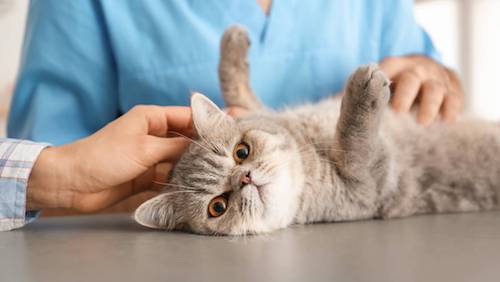
Although, when there were two dogs in Hongkong and one cat in Belgium who were tested positive for the virus, it raised questions about animals being a source of transmission of the virus.
Scientifically speaking, cats have the same receptor cells for the virus as humans but whether the virus attaches and replicates itself within felines is the question. If so, are cats immune to the virus? There is no confirmation and with the amount of increasing cases in humans, testing animals for the novel coronavirus is not the need of the hour.
During such times, it is always advisable to maintain our distance from everyone around and stay safe in our houses which apply to our pets too. Follow routine hygiene and keep the house surfaces sanitized.
In case you are a victim of the virus, ask for someone to take care of your cat and stock up on their essentials. Do not leave them abandoned as this can affect their psychological state. Have someone take care of them until you are back in good shape.
These small steps can help us combat the virus until further reports on cats getting the novel coronavirus to get confirmed.
